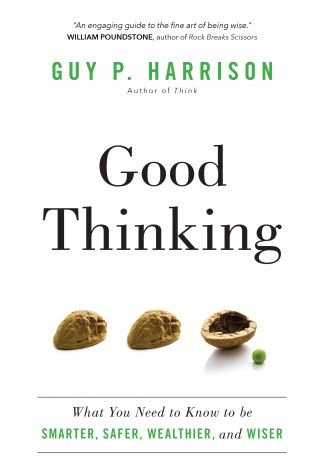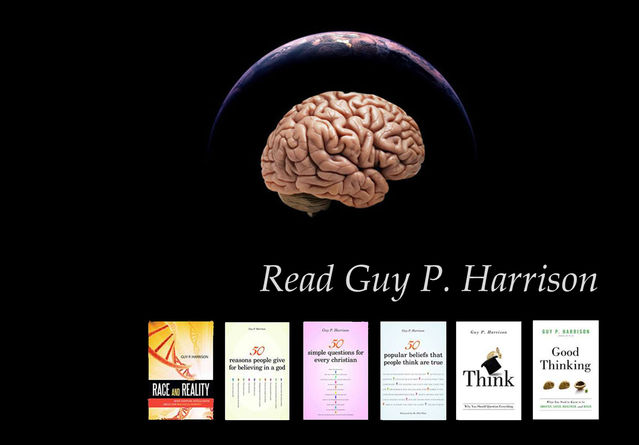Intelligence
What Can We Learn from Ben Carson's Brain?
Intelligence and education no guarantee of 'good thinking.'
Posted October 16, 2015
Pay attention to Dr. Ben Carson’s campaign for the Republican presidential nomination. He is presenting America and the world an invaluable lesson on critical thinking. Contrary to a popular assumption, a sharp mind and extensive education do not guarantee good thinking skills. Carson is a glaring example of this.

One can hardly imagine a better case of inconsistent thinking and misapplied brain power in the public arena today. Carson, a successful brain surgeon and Yale graduate, is obviously intelligent and well educated. Yet he continually says things that any clear-thinking high school kid would cringe at.
He mocks the Big Bang Theory as absurd. (Like all theories, the Big Bang Theory is a work in progress, of course, but it is based on solid scientific evidence.) He says Charles Darwin was under Satan’s control when he developed the Theory of Evolution. (And what’s your evidence for this extraordinary claim, Dr. Carson?) He thinks moral behavior in humans somehow proves the existence of his particular god. (This is a popular but silly notion. Bonobo chimps exhibit moral behavior, too. Does this prove the existence of a little hairy bonobo god?) He claims to believe in micro-evolution but not macro-evolution. (This seems to me like believing in house fires but not forest fires.) This week Bill O’Reilly asked Carson whether or not he believes the Earth is 6,000 years old. Carson replied, “I don’t know how old the Earth is.” (Look it up! Have you so little curiosity about your home? Overwhelming evidence points to an age of about 4.6 billion years, as every middle school student with a competent science teacher knows.)
"We all fail to some degree when it comes to applying critical thinking in our lives."

This goes far beyond usual tribal politics. Regardless of one’s loyalties, there are reasons to worry about those with poor reasoning skills rising to positions of great power and influence. I write about this problem in my new book, Good Thinking: What you need to know to be smarter, safer, wealthier, and wiser. Innate brilliance and/or success in the classroom make none of us immune to sloppy thinking.
"The natural functioning of our brains and the normalized madness of popular culture conspire to make fools of us all every moment of our lives."
Major League pitchers and NFL quarterbacks both use their arms to throw. But we can’t assume one can do the other’s job well. The skills don’t necessarily translate. It is much the same with thinking. The ability to use a human brain well one way does not mean it automatically works well in other ways. Critical thinking requires self-awareness, commitment, and vigilance. It’s a mindset and an attitude, not a body of coursework or an IQ test score.
There is nothing unusual about Carson. We all fail to some degree when it comes to applying critical thinking in our lives. The natural functioning of our brains and the normalized madness of popular culture conspire to make fools of us all every moment of our lives. Our only hope for reducing the error rate is vigorous and consistent good thinking. By understanding the basics of brain evolution, structure, and function we all can have a fighting chance at being rational when it counts. Knowing how vision and memory really work encourages us to second-guess ourselves, seek more evidence, and be willing to revise any conclusion. Awareness of how vulnerable we are to subconscious biases can motivate us to work toward being something better than blindfolded zombie puppets.
Be humble and be ready. Strive to be a good thinker every waking moment.
Guy P. Harrison is the author six books that promote science and reason, including Good Thinking: What you need to know to be smarter, safer, wealthier, and wiser



